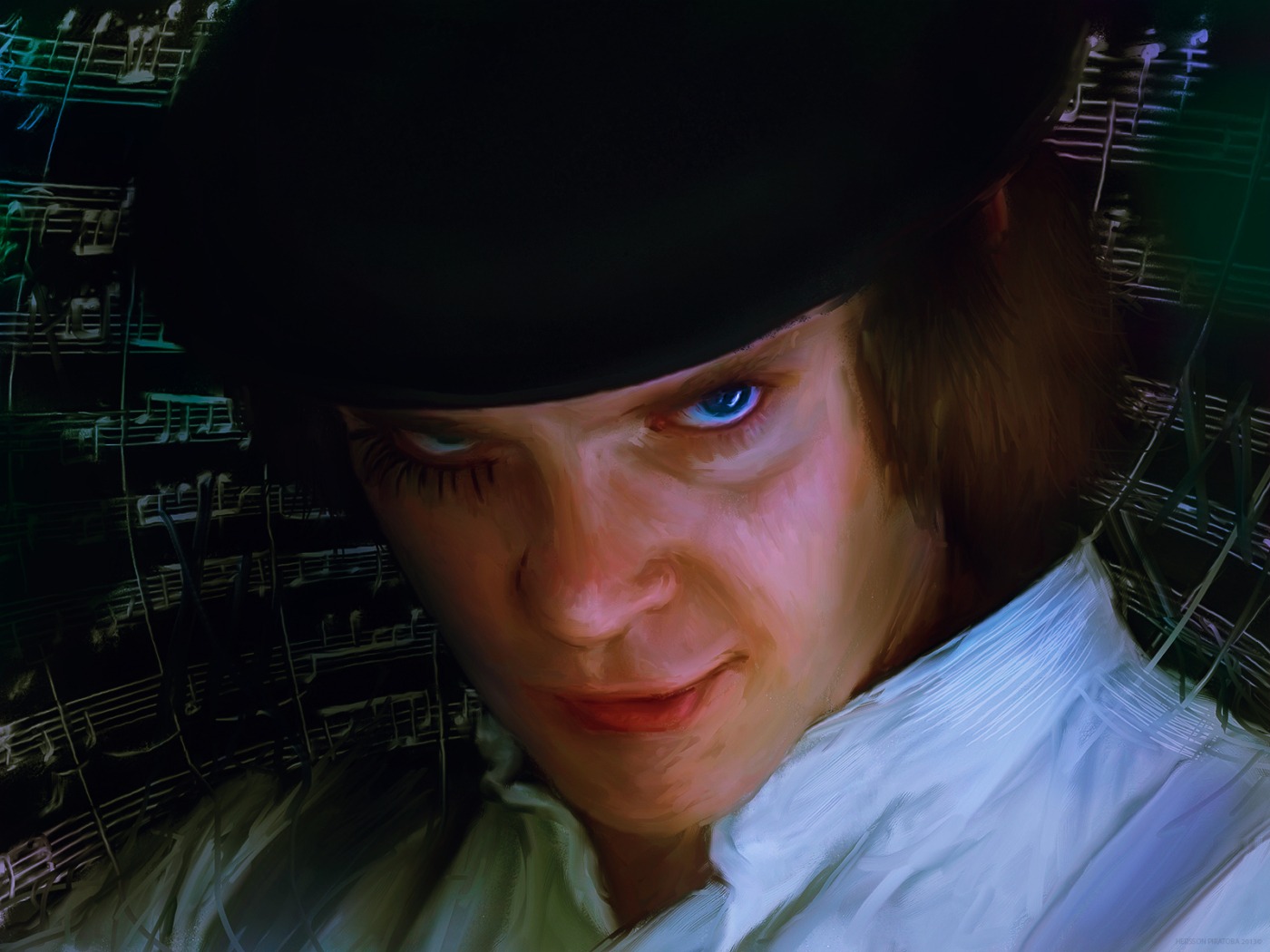Last Night I Watched: ‘A Clockwork Orange’
Novel-to-film adaptations have garnered mixed results to say the least. Directors and screenwriters often struggle to deduce which themes and perspectives they wish to display from the source material on screen. Not only this (and given creating a film is always a difficult task) they have to consider that the movie produced is a covert advert for the original text to an entirely new audience.
However, one director who seldom struggled to represent novels on screen was Stanley Kubrick. His movies are some of the best novel to film adaptations in Hollywood film history. Though movies such as The Shining (1980) and 2001: A Space Odyssey (1968) are deemed his best, I have a soft spot for A Clockwork Orange. Being one of the first films I watched when I still felt staying up until the early hours of the morning was a rush, it entertained the philosopher in me by subtly posing questions concerning morality, justice, and redemption.
Firstly Kubrick does very well in portraying dystopian England through the use of a dreary colour palette, and grimy settings. The greyness and washed out colours illustrate how the setting is devoid of character and vitality. The rolling establishing shot of Alex DeLarge’s humble abode emphasises this. Its inconceivable messiness augments the degradation of this particular society. The Britishness of the whole setting shines too, since the colour palette is inherently understated – stereotypically a British quality.
Secondly, the film’s score nicely dampens the tragedy and severity of the various heinous events that transpire throughout. This helps to centre the focus of the viewer on the movie’s many philosophical and socio-political concerns. An example of this is when Billy-Boy and his droogs attempt to gang rape a woman leading to them fighting Alex and his droogs, with the classical music and expressive choreography being apparent. This doesn’t trivialise the acts of brutal crime, but rather prevents these occurrences from being pure shock value and more a means of legitimising the dystopian world on screen.
Not to mention this movie is quite hilarious. At various moments, be it the interaction between Alex and PR Deltoid or the scenes with chief guard Barnes, there is levity and humour which makes the film more digestible and balanced.
The audience are not impeded by the inherent detestable character of the protagonist
Though the most impressive aspect of A Clockwork Orange is Kubrick’s crucial changes to the source material. Among the multitude of alterations, in this adaptation Alex doesn’t sexually abuse younger children, nor does his character drastically change at the very end. As well as this, Kubrick frames Alex DeLarge’s murders comically with the murder of Miss Weathers being case in point. The very colourful setting with the rotating handheld camera work, which includes jarring cuts, makes the event more humorous and palatable. These decisions by Kubrick, accompanied by Malcolm McDowell’s fabulous performance as Alex which is full of charm and self-assurance, especially contributes to the original novel’s themes of morality being more engaging. The audience are not impeded by the inherent detestable character of the protagonist.
Of course, the movie doesn’t shy from portraying Alex’s reprehensible character. However, a wonderful balance is struck such that the viewer can question whether there are limits to our perceptions of justice.
We are encouraged to wonder if morality is as clearly defined as we believe it is. The Ludovico Medical Facility’s treatment of Alex is most conducive for this discussion. For treatment that includes immoral techniques, the extraction of free will and assertiveness among other qualities, you can assess that an organisation that aims to correct criminals ceases to occupy the moral high ground. What is worse: an authentic singular evil force or sinister corruption disguised as justice for the greater good?
This ties into another change Kubrick made from the source material. The incompetence and desperation of the British government is particularly emphasised here. There are frequent references to governmental initiatives to satisfy varying needs, including the introduction of the treatment Alex underwent in order to reduce prison capacity. Consequently, the examination of the legitimacy of authority is welcomed. Can an establishment create a series of bureaucratic procedures in order to simply facilitate their self interests?
Alex DeLarge’s rough encounter with reality post treatment enables the audience to question when justice is indeed served
Forgiveness and redemption is another significant concern. Alex DeLarge’s rough encounter with reality post treatment enables the audience to question when justice is indeed served. Given the superb characterisation and story up to this point, other characters’ unwillingness to forgive Alex and, in fact, inflict more punishment is seen more as problematic rather than justified. It’s apt given the prevalence of cancel culture recently. People can act as if they do no wrong and or people are unable to grow and change. The inherent hypocrisy in the double standard that people set for others is unhelpful. Arguably forgiveness is a privilege for the one who did wrong, however, we shouldn’t conflate forgiveness with forgetting as people seem to do.
The brilliant ending drives home the discussion of whether everyone is redeemable. Feasibly the other side of the coin regarding the forgiveness argument. If one is incapable of changing are they allowed to be forgiven?
Overall, Stanley Kubrick’s take on A Clockwork Orange is stunning. He takes risks with the source material that very few film adaptations of novels do. This film is a legitimate basis of serious conversations regarding morality and justice which the novel aims to do. It breathes such life and vivacity to the text, and Kubrick demonstrates here how powerful films can be in re-envisioning and selling the themes found in other forms of media. Though you are justified to err on the side of caution concerning film adaptations, A Clockwork Orange illustrates the brilliance of them when done correctly.

Comments